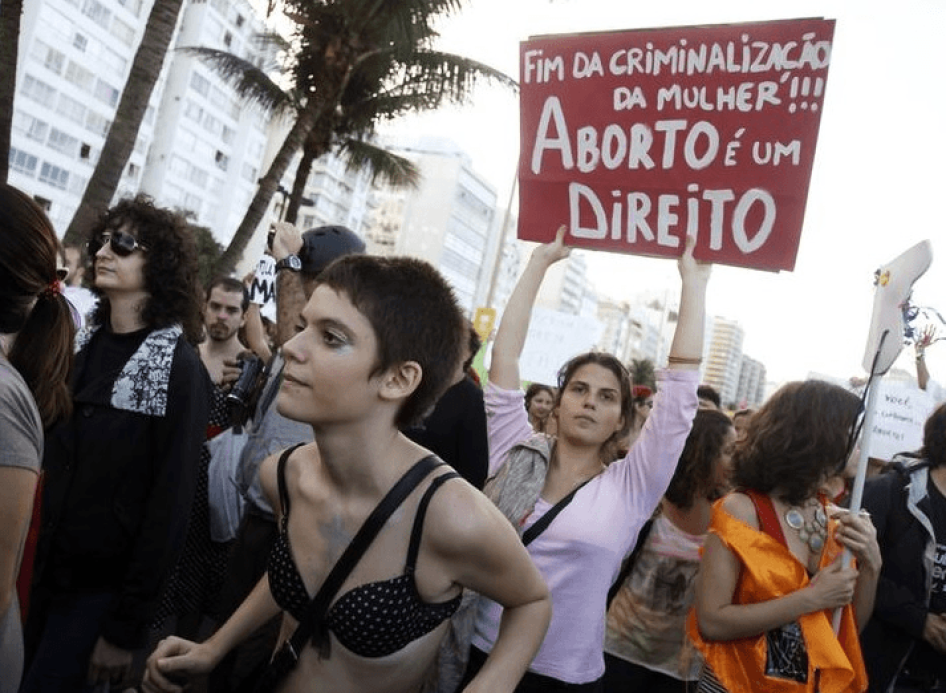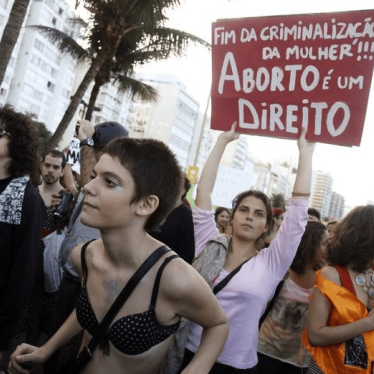Last week, Rebeca Mendes Silva Leite, a 30-year-old woman from São Paulo, Brazil, asked Brazil’s Supreme Court for permission to safely and legally terminate an unplanned pregnancy she does not want to continue.
No woman should find herself in this position. But because Rebeca lives in Brazil, where abortion is illegal in most circumstances, she does not qualify for a legal abortion.
In a letter to the Supreme Court, which she bravely read aloud in a video on YouTube, she explained that she became pregnant unexpectedly while she was in the process of switching contraceptive methods. As a mother of two, she is already struggling financially, and feels that she cannot continue the pregnancy and provide for her family. She did not want to resort to the clandestine and unsafe abortion methods that so many women and girls in Brazil are forced to use. “I do not want to be arrested, much less die,” she said in her letter.
So she did something unprecedented: she asked the Supreme Court to grant her permission to legally terminate her pregnancy. She filed her request through the Socialism and Freedom Party (PSOL), with support from Anis – Institute of Bioethics, which asked the court for an injunction to extend the decision to all pregnant women.
On Friday, November 24, Justice Rosa Weber denied the request for procedural reasons, but did not rule on its merits.
Rebeca now faces the impossible choice that so many pregnant women and girls in Brazil confront each year: continue her pregnancy against her wishes, or risk her health and potentially jail time by having an illegal abortion.
As I watched her read her letter aloud, aspects of her experience felt very familiar. I interviewed dozens of women and girls in northeastern Brazil about their reproductive health for a Human Rights Watch report published earlier this year. Many of them had unplanned pregnancies while changing contraceptive methods, or waiting to access longer-acting methods like intrauterine devices (IUDs). Many said they felt desperate when they discovered they were pregnant, often citing the economic hardships their families faced. But the stigma around abortion is so heavy that many women were reluctant to even speak about whether they had considered terminating their pregnancies, even though studies suggest that 1 in 5 Brazilian women will terminate a pregnancy by age 40.
Currently, abortion is legal in Brazil only when the pregnancy resulted from rape, when the life of the woman is at risk, or when the fetus has anencephaly, a fatal congenital brain disorder.
Brazil’s Supreme Court is set to consider two pending cases with profound implications for women’s reproductive freedoms. One case could allow pregnant women infected with Zika—a virus that can cause lifelong disabilities when a fetus is exposed —who are experiencing anxiety or distress to access legal abortion. The other would decriminalize abortion on any grounds in the first 12 weeks of pregnancy. Human Rights Watch filed amicus briefs in both cases, arguing that Brazil’s restrictions on abortion are incompatible with its human rights obligations.
But a frightening constitutional amendment before the Chamber of Deputies would change Brazil’s existing law and ban abortion in all circumstances, meaning that even women and girls who became pregnant after rape, or whose lives were threatened by their pregnancies, would not be able to get an abortion. A congressional committee approved the amendment in early November but it has not yet been brought for a vote in the full Chamber of Deputies. The amendment would need super-majority votes in both houses of Congress.
Rebeca’s appeal to the Supreme Court took tremendous courage. Brazilian authorities should take urgent steps to decriminalize abortion and protect women’s rights to make deeply personal decisions about their health and lives.










